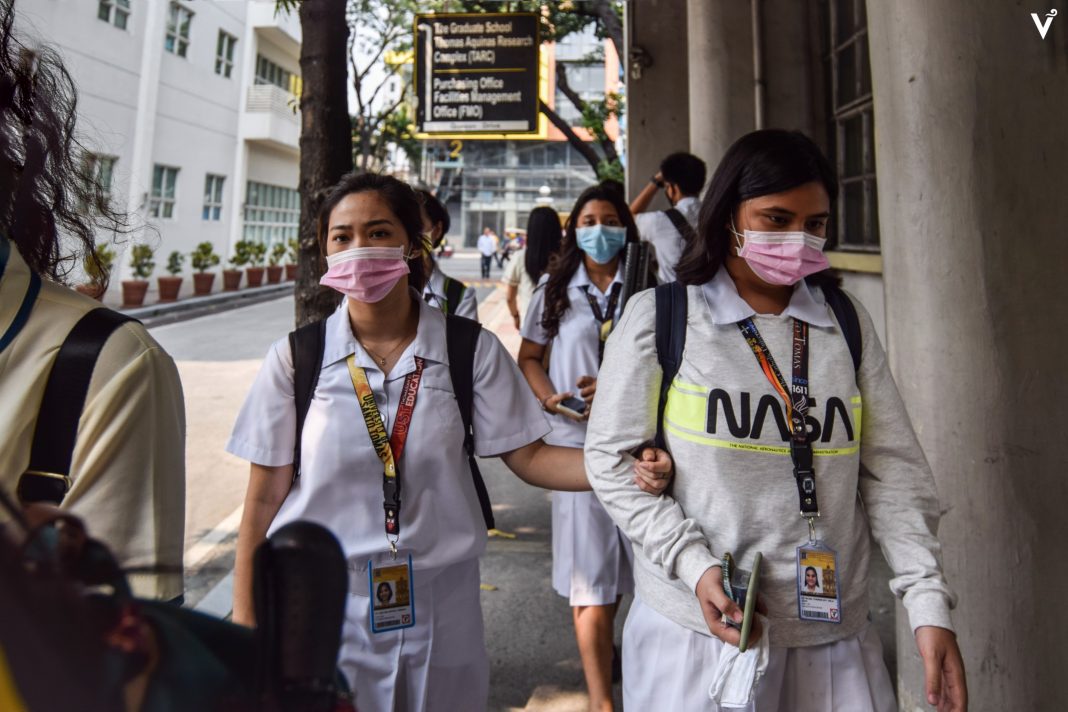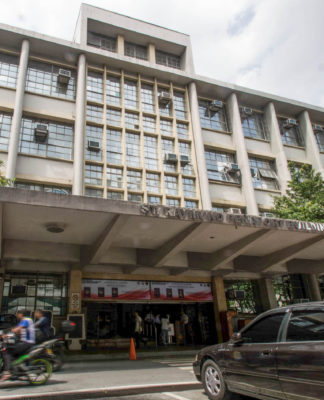Graduating students enrolled in internship and practicum courses will be prioritized in the expansion of face-to-face (F2F) classes in UST, the Office of the Vice Rector for Academic Affairs said.
In an email to the Varsirarian, Vice Rector for Academic Affairs Prof. Cheryl Peralta said that for F2F classes, “skills-based courses where the learning outcomes are best taught and assessed through in-person teaching and learning strategies” and “graduating students who are enrolled in internship and practicum courses” would be prioritized.
The reason, Peralta said, was to “ensure that they are prepared to enter the world of work despite the shift to remote instruction during the final years in their educational preparation.”
“Academic units prepare their training plans taking into consideration identified program outcomes that will need to be addressed, cyclical cohorting of students and academic staff, as well as the operationalization of all safety protocols that need to be implemented,” she said.
“[We] wait for the release of policies and guidelines before finalizing our application for authority to reopen,” Peralta told the Varsitarian.
Prospero de Vera, chairman of the Commission on Higher Education (CHEd), recently said in-person classes for all degree programs could resume as soon as possible for universities that had secured approval of the government.
Limited F2F classes resume
Limited F2F classes for interns in the University’s medical technology and physical therapy programs resumed as Metro Manila was placed under Covid-19 Alert Level 3.
Medical technology and physical therapy interns returned to campus on Oct. 4 and Oct. 18, respectively, while nursing students are set to start their Related Learning Experience (RLEs) on Nov. 8.
Health protocols and guidelines set during the first batch of F2F classes earlier this year were still being observed, University officials said.
“As in previous practice, we still follow the protocols established by the University. All health and safety measures are still being implemented. We required all the students, academic staff, and clinical supervisors to undergo RT-PCR testing prior to the start of their F2F [classes],” Assoc. Prof. Anne Marie Aseron, Rehabilitation Sciences dean, told the Varsitarian.
Aseron said that students who could not return to campus were permitted to do their internships virtually.
“We launched a survey on the readiness and concerns of the students to go back to F2F internship. Majority expressed their fear of the Delta variant. We allowed interns who cannot return to campus this October to have their internship virtually for now,” Aseron added.
The PT interns have alternating class days in October. Their number of class days will be increased once pandemic restrictions ease further, the dean said.
Nursing Dean Prof. Rowena Escolar-Chua said limited F2F classes in the College of Nursing would begin on Nov. 8. A negative RT-PCR test will be required from nursing students who will participate in the RLEs “to ensure the safety of everyone.”
“As the [Covid-19] cases are going down and the quarantine restriction level [in Metro Manila] has been downgraded, [Nursing] will be having its face-to-face classes come Nov. 8, 2021. This will be after the prelim exams of the college, which are scheduled on Nov. 4 to 6,” Escolar-Chua said.
Medical technology students were also required to undergo RT-PCR testing before their duties at the Central Laboratory. Their in-person class days were reduced from 10 days to three.
Health requirements for interns
Gabrielle Aguilar, a medical technology student who joined the in-person classes, said students shouldered the expenses for the required booster vaccination for other diseases and laboratory tests to verify their health status.
“We have to have our vaccines updated for tetanus, MMR, Hepatitis A and B… Required kasi samin ‘yung mga yon since we would handle possible infectious samples from real patients,” Aguilar told the Varsitarian.
Physical therapy intern Kimi Enriquez said that aside from Covid-19 vaccination and RT-PCR testing before their face-to-face engagements, students were also required to buy health insurance. Christine Joyce Paras


















